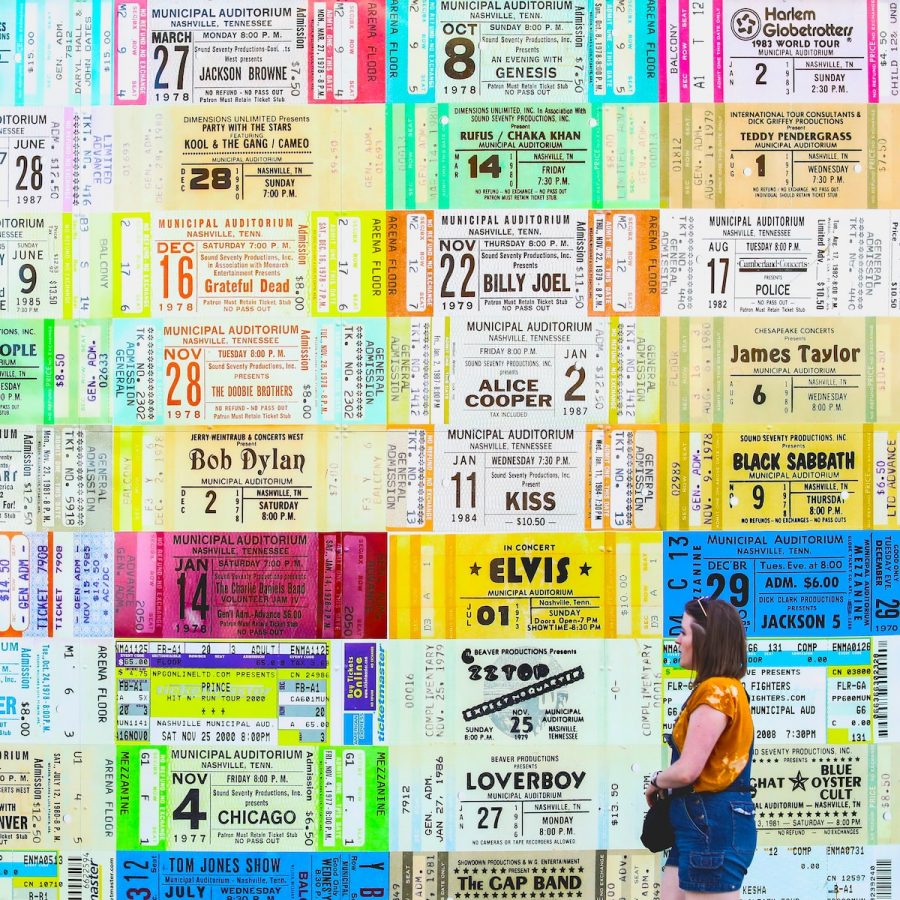Decided you want to buy a non-fungible token (NFT) ticket? First you need Ethereum, which is available at Robinhood and eToro.
As non-fungible token (NFT) mania begins to die down, questions regarding utility have arisen. One of the most talked-about potential use cases for NFTs is in the form of a ticket. While NFT ticket startups are numerous, wide adoption has yet to be seen.
NFTs grant the ability to tie digital assets to unique tokens on the blockchain. Thus far, the most successful use for NFTs tied jpegs of cartoon animals to tokens. This mundane first use case resulted in a market worth $15.8 billion in 2021, via GlobeNewswire.
Demand exists for NFTs, with potential to tie more complex digital assets to NFTs — notably, tickets.
Before getting into NFT tickets, it is important to lay out what an NFT is. NFTs originated through the ERC-721 token standard on Ethereum and hold a unique property. The uniqueness creates different values for the individual tokens.
The technology sparked an NFT art craze, where digitally created art is verifiable and tradeable on a blockchain. NFTs also can hold royalties for the original creator. For example, an artist can set a 5% royalty for every resale of the artwork.
With unique values, it’s easy to distinguish between NFTs and between real and fake digital assets. For example, BAYC has a collection of 10,000 ape images with each ape being a unique art piece. Their uniqueness makes them unlike the ERC-20 tokens (Dogecoin, Uniswap, USDC, etc.) that can be easily swapped one for one.
While the art stage of NFTs is impactful, more complex uses could be implemented. The ability to verify ownership on the blockchain and resell with built-in royalties could be used to innovate the ticket sales economy. Also, the ability to drop a collection of NFTs with unique traits among the collection could be mimicked with an event that drops a collection of tickets that hold unique seat numbers and other details.
The most notable problems seen with traditional tickets are:
This list could go on, and while NFTs may not solve all the problems, the continued improvement of smart contracts could. New token standards continue to be released, as well as improvements to blockchains, which, according to Vitalik Buterin, will only be 55% complete following the Merge in Ethereum.
Some key benefits that NFT tickets provide fans are:
By using blockchain to authenticate tickets, fake tickets can be eliminated. The benefits are obvious. NFT technology allows access to fan communities and discounts on merchandise. Also, many fans keep tickets as collectibles — similarly to how Facebook puts your photo album online, NFTs can move your tickets from your sock drawer to the public blockchain.
With a number of obvious advantages, the biggest issue is that not all fans are onboarded to crypto. This factor eliminates a large section of potential buyers. However, the first market to implement ticket NFTs is crypto conferences. With the majority of these attendees being crypto natives, it is easier to use this new technology.
NFTs are also beneficial for artists who perform at events.
Some advantages could include:
Artists currently have no easy way to profit from the resale of tickets, but NFT allow artist royalties. NFTs can provide permanent, digital proof of attending an event. For certain events, this ticket could be worth a lot of money in the future. Artists can also reach out to fans long after the night of the event, so the prospects of community-building and increased artist profits are limitless.
The most popular marketplace is OpenSea. Other options exist such as YellowHeart, Rarible, Nifty Gateway and LooksRare. Each marketplace caters towards different needs and perks for users. Some marketplaces have been created specifically for the use of NFT tickets.
NFT tickets can be created on NFT platforms like OpenSea, but some platforms specialize in this area. One example of this is Oveit. The platform allows users to create, mint and sell tickets. Perks include invite-only registrations, instant payments and global sales.
NFTs are an innovative technology with the potential to change the ticket industry. However, some see NFTs as a solution looking for a problem. Whether this is because NFTs are too early in a new technology or if they have reached their max potential with art has yet to be determined. With the amount of talent joining the crypto and NFT space, it’s not time to discount ticket NFTs yet.
Benzinga crafted a specific methodology to rank cryptocurrency exchanges and tools. We prioritized platforms based on offerings, pricing and promotions, customer service, mobile app, user experience and benefits, and security. To see a comprehensive breakdown of our methodology, please visit see our Cryptocurrency Methodology page.
Disclaimer: As per the European Securities and Markets Authority (ESMA), the percentage of retail clients losing money on CFD trading must be updated every three months. Please note that eToro’s new results are 68% in regards to retail investor accounts losing money when trading CFDs with eToro.
This content should not be interpreted as investment advice. Cryptocurrency is a volatile market, do your independent research and only invest what you can afford to lose.
Want to advertise with us? Send us a message.
© 2022 Benzinga | All Rights Reserved
Advertiser Disclosure: TD Ameritrade, Inc. and Accretive Capital LLC are separate, unaffiliated companies and are not responsible for each other’s services and products.
Editorial Disclosure: Reviews are as determined by Benzinga Money. Opinions expressed here are solely the author’s and have not been reviewed, approved or otherwise endorsed by reviewers.

